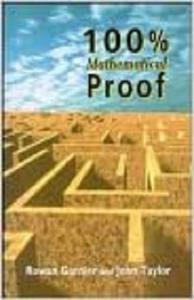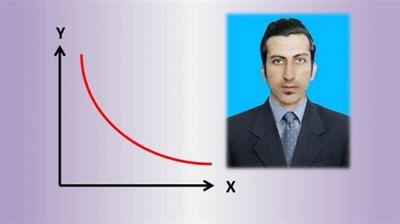Discrete Maths - Mathematical Induction & Binomial Theorem
"softddl.org"
4-05-2022, 16:37
-
Share on social networks:
-
Download for free: Discrete
-

Genre: eLearning | MP4 | Video: h264, 1280x720 | Audio: AAC, 48.0 KHz
Language: English | Size: 3.8 GB | Duration: 25 lectures * 4h 2m
IIT-JEE Main & Advanced | BITSAT | SAT | MSAT | MCAT | State Board | CBSE | ICSE | IGCSE

Genre: eLearning | MP4 | Video: h264, 1280x720 | Audio: AAC, 48.0 KHz
Language: English | Size: 3.8 GB | Duration: 25 lectures * 4h 2m
IIT-JEE Main & Advanced | BITSAT | SAT | MSAT | MCAT | State Board | CBSE | ICSE | IGCSE
What you'll learn
Introduction
Motivation
The Principle of Mathematical Induction
Binomial theorem
Some important observations
Some particular cases
The pth term from the end
Middle terms
Binomial coefficient
Requirements
Basic knowledge of mathematics of 9th and 10th std Mathematics
Description
Principle of Mathematical Induction
Process of the proof by induction −
Motivating the application of the method by looking at natural numbers as the least inductive subset of real numbers
The principle of mathematical induction and simple applications
Binomial Theorem
History
Statement and proof of the binomial theorem for positive integral indices
Pascal's triangle
General and middle term in binomial expansion
Simple applications
SUMMARY
Principle of Mathematical Induction
1. One key basis for mathematical thinking is deductive reasoning. In contrast to deduction, inductive reasoning depends on working with different cases and developing a conjecture by observing incidences till we have observed each and every case. Thus, in simple language we can say the word 'induction' means the generalisation from particular cases or facts.
2. The principle of mathematical induction is one such tool which can be used to prove a wide variety of mathematical statements. Each such statement is assumed as P(n) associated with positive integer n, for which the correctness for the case n = 1 is examined. Then assuming the truth of P(k) for some positive integer k, the truth of P (k+1) is established.
3. Property (i) - is simply a statement of fact. There may be situations when a statement is true for all n ≥ 4. In this case, step 1 will start from n = 4 and we shall verify the result for n = 4, i.e., P(4).
4. Property (ii) - is a conditional property. It does not assert that the given statement is true for n = k, but only that if it is true for n = k, then it is also true for n = k +1.
Binomial Theorem
1. A triangle with 1 at the top vertex and running down the two slanting sides. This array of numbers is known as Pascal's triangle, after the name of French mathematician Blaise Pascal. It is also known as Meru Prastara by Pingla.
2. The coefficients nCr occuring in the binomial theorem are known as binomial coefficients.
3. There are (n+1) terms in the expansion of (a+b) n, i.e., one more than the index.
4. In the successive terms of the expansion the index of a goes on decreasing by unity. It is n in the first term, (n-1) in the second term, and so on ending with zero in the last term. At the same time the index of b increases by unity, starting with zero in the first term, 1 in the second and so on ending with n in the last term.
5. In the expansion of (a+b) raise to n , the sum of the indices of a and b is n + 0 = n in the first term, (n - 1) + 1 = n in the second term and so on 0 + n = n in the last term. Thus, it can be seen that the sum of the indices of a and b is n in every term of the expansion.
Who this course is for
Complete Mathematics for Engineering Entrance Exam Preparation. ( IIT-JEE Main | Advanced | BITSAT | SAT | etc.)
State Board | CBSE | ICSE | IGCSE | Course for High School & College
Courses are suitable for students from over 160 countries from Europe, America, Middle East, Asia, Africa and APAC. Notably England, Germany, France, Sweden, Ireland, Scotland, USA, Canada, UAE, Saudi, Qatar, Kuwait, Malaysia, Indonesia, Myanmar, Newzealand, Australia, South Africa, South Korea, Nigeria, Nepal, Sri Lanka, etc
Homepage
https://www.udemy.com/course/discrete-maths-mathematical-induction-binomial-theoremhttps://hot4share.com/dld6kxfnn2oa/5z94i.Discrete.Maths..Mathematical.Induction..Binomial.Theorem.part1.rar.html
https://hot4share.com/h7xg87klqzr3/5z94i.Discrete.Maths..Mathematical.Induction..Binomial.Theorem.part2.rar.html

https://uploadgig.com/file/download/7564f60e9bed5480/5z94i.Discrete.Maths..Mathematical.Induction..Binomial.Theorem.part1.rar
https://uploadgig.com/file/download/98b6b48d35503DC0/5z94i.Discrete.Maths..Mathematical.Induction..Binomial.Theorem.part2.rar

https://rapidgator.net/file/aff20878a1605808c7438b3a74f4fb5e/5z94i.Discrete.Maths..Mathematical.Induction..Binomial.Theorem.part1.rar.html
https://rapidgator.net/file/e89af77e2e013afb81ae2e22aee2f359/5z94i.Discrete.Maths..Mathematical.Induction..Binomial.Theorem.part2.rar.html

https://nitro.download/view/5A843AC1632BC00/5z94i.Discrete.Maths..Mathematical.Induction..Binomial.Theorem.part1.rar
https://nitro.download/view/7E934A27C7C18BA/5z94i.Discrete.Maths..Mathematical.Induction..Binomial.Theorem.part2.rar
Links are Interchangeable - No Password - Single Extraction
The minimum comment length is 50 characters. comments are moderated





